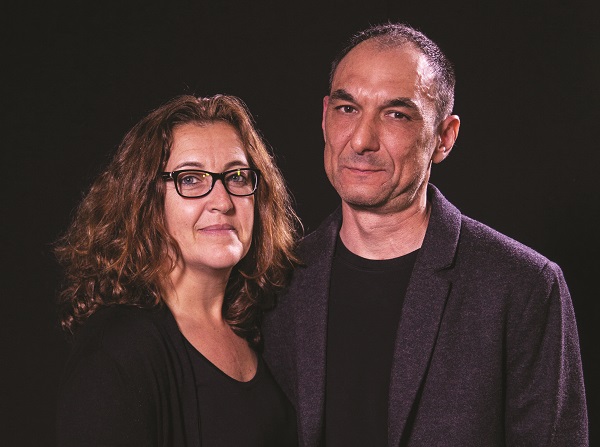General News » News
Rare blood cancer diagnosis leaves local couple fighting back and helping others
September 21, 2017 · 0 Comments

By Brock Weir
Just a few short months ago, Mark Silverstein and Nelia Pacheco prepared to say their goodbyes.
Diagnosed with Chronic Lymphocytic Leukemia (CLL) in 2010 at the age of 45, Mark has been following a tough road with his wife by his side every step of the way.
Along the way, the blood cancer which typically hits people with a median age of 72, has put them on a vicious cycle of repeated remission and relapse, but things came to a head earlier this year.
“2017 has not been great,” says Mark. “I went through my third relapse at the beginning of this year and wound up in the hospital for the first time in my seven years since diagnosis.”
The white blood count in a healthy adult typically runs between 5,000 and 11,000. Mark’s, however, was a staggering 400,000 and the prognosis was grim.
Despite the dire diagnosis, however, Mark and Nelia are still fighting the fight and coming forward with their story to raise awareness during September’s Blood Cancer Awareness Month.
An estimated 138,000 people in Canada are living with, or in remission from, a type of blood cancer. Over 2,200 people in Canada alone are thought to be diagnosed with CLL each year but it remains a relatively unrepresented type of cancer, according to doctors, as CLL is a unique breed: difficult to diagnose, early diagnosis does not help, and relapse is high.
After several tests which pointed in many different directions, doctors finally pinpointed his exact diagnosis. Doctors took Nelia aside to break the news and it was left to her to tell her husband. Being the first to receive the news was overwhelming, she says, but they had to move forward.
“Initially our thoughts were about can we get through the treatment and make this go away?” says Mark. “The one thing about my cancer, and the one thing I picked up on, was it took almost a month before I was diagnosed and it was a chronic cancer. Part of this whole journey has been wrapping our minds around it.”
Adds Nelia: “When we finally got the initial diagnosis, the focus is so much on just getting through the treatment. It is almost secondary because you’re focused on what’s going to happen with your home life, Mark’s work, my work. You have two kids you’re trying to raise and you’re trying to go through this treatment almost day by day. When the treatment is complete, then you can sit back and actually evaluate the cancer diagnosis.”
You put your “game face” on to get through the treatment, says Mark, but there comes a time when you have to address those emotional and intellectual hurdles.
Along with those emotional and intellectual hurdles, there are also practical ones.
You are unable to work, there are huge financial impacts, the balance between the marriage partners changes, and your relationships can be redefined.
“The first year was an absolute nightmare,” Nelia recalls. With a cancer diagnosis, there is an aspect of denial. I don’t like the term ‘caregiver,’ I use the term ‘care partner’ and I was automatically thrown into the position of being a care partner – and I am not a natural care partner. It is not part of who I am, but there is also that expectation. It is a challenge because you’re put into a certain category of who you are supposed to be and I find that as a couple, and a family, that it was challenging. We can be honest with each other, and express the good, the bad and the ugly and still not take it personally and respect what each other’s roles, strengths and weaknesses are.”
This honesty has transcended Mark’s work.
Shortly after his diagnosis, Mark lost his job. He took this as an opportunity, going back to school to get his degree, now working as a psychotherapist to help others who are facing a similar journey, including facilitating a program at Hope House Hospice in Aurora called Picking Up The Pieces.
“A diagnosis can also be a bit of a blessing and give you opportunities to change the way you live and how you love your partner,” says Mark. “I ended up losing my job soon after chemo, but now I can actually help people who are survivors and who are terminal cancer patients get through it.”
During this month of Blood Cancer Awareness, Mark and Nelia encourage anyone who might be on a path like theirs to learn everything they can about their disease.
“The more you understand, the better you can advocate for yourself,” he says, noting his current medical treatment stems from a combination of drugs he read about and suggested to his own hematologist, spurring the doctor, in turn, to find out more. “There is a loss of control in this whole process and the only control you can probably find is in the choices you make. The more you understand, the more you advocate for yourself, the better choices you will probably make.
“If the disease is going to get you, it is going to get you, and there is only so much you can do about that part.”











